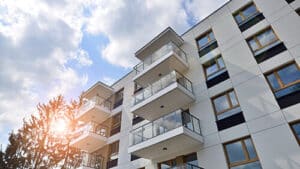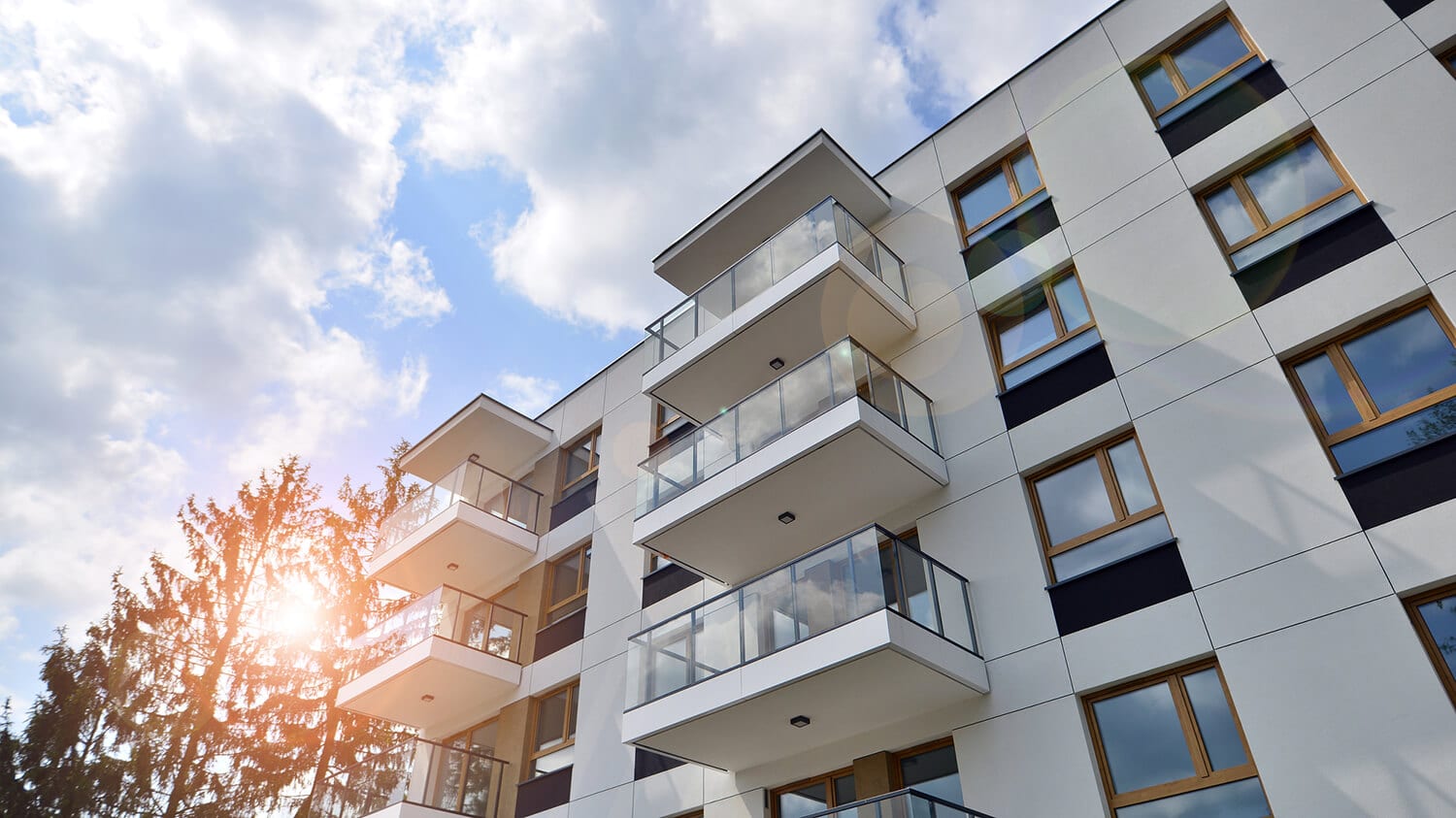In-Depth Exploration of New Jersey Zoning Challenges in Real Estate Deals
 Ready to seal the deal on your New Jersey property? Watch out—zoning laws might throw a wrench in the works before you sign on the dotted line. Understanding the pitfalls of buying a property is essential, as is knowing how zoning laws can affect what you do with it. Losing time, money, and maybe the property itself can be a real estate nightmare that often occurs due to zoning-related challenges. Let’s explore how zoning restrictions can influence the success or failure of a real estate transaction in New Jersey.
Ready to seal the deal on your New Jersey property? Watch out—zoning laws might throw a wrench in the works before you sign on the dotted line. Understanding the pitfalls of buying a property is essential, as is knowing how zoning laws can affect what you do with it. Losing time, money, and maybe the property itself can be a real estate nightmare that often occurs due to zoning-related challenges. Let’s explore how zoning restrictions can influence the success or failure of a real estate transaction in New Jersey.
Frequent Ways Zoning can Cause Problems in Real Estate Transactions in New Jersey
Residential vs. Commercial Designations
Residential zones are specifically designated for housing. Multi-family buildings include apartments, condominiums, and duplexes. Single-family homes, such as free-standing homes and townhouses, are favored when families seek a truly suburban environment. Zoning laws in these areas set density limits and building heights to maintain the neighborhood feel. Commercial zones are designated for businesses, stores, offices, and other retail establishments. Commercial zoning laws keep businesses accessible to consumers without overtaking residential areas.
Challenges of Rezoning
Zoning restrictions are conducted on a municipal level. Zoning board meetings are public. Community members will resist a zoning change when they fear heavier traffic, environmental effects such as pollution, or decreased property values. Rezoning is a drain on government resources that are already stretched thin. This process may require surveys and land and traffic flow studies. If the present infrastructure (roads, utility services) is already compromised, changes could be long in coming. Even long-term rezoning projects can be an uphill battle if the economic conditions, demographic trends, or community needs change over time.
Adherence to Property Zoning Restrictions
Any construction of a new structure or renovations made to an existing one must adhere to the strict zoning laws established by the municipal ordinances. For example, a store owner in a strip mall cannot renovate their store into a housing unit. The building must be used for commercial reasons if it is in a commercial zone. If a property owner cannot conform to the zoning requirements. In that case, they can apply for a variance with the zoning board to receive permission to use or develop the property in a way that is contrary to the zoning restrictions.
Complications of Variances and Special Permits
A variance is a special permission the zoning board gives to an applicant requesting an exception from the zoning laws. Requesting a variance is complex and is best completed with legal assistance. The applicant fills out a form with the requested details, including a justification for the permission, and submits it to the Board, who then have 45 days to deem the application complete or incomplete.
The applicant must provide public notice before the Board can consider an application. Required notice entails listing specific details in a local municipality newspaper at least ten days before the hearing date. These details are as follows: the street address, lot, and block of the property in question, the date, place, and time of the hearing, and the nature of the variance being applied for. It must also state where and when the public can find documents about the application.
At the hearing, the burden is on the applicant to demonstrate why the variance should be granted. The applicant should provide evidence of how the zoning laws apply to their property. It is also essential for the applicant to demonstrate the positive and negative outcomes of a decision in their favor.
Non-Conforming Use in Property Zoning
When there is a dispute, a municipal zoning board can decide whether a structure or use qualifies as a pre-existing, non-conforming use or structure. When a building’s current use and structure is similar to that prior to any new ordinances, it can be “grandfathered” as an exception. However, if the owner wants to expand the structure or change its purpose, a D(2) variance must be requested. For example, suppose Larry’s Laundromat on South Green St. has been there for 20 years, and changes in zoning laws have named South Green St. a residential area. In that case, the change in zoning may not affect Larry’s sudsy sales unless he decides to demolish the laundromat and build a pizza shop because his business has been there for so many years.
Building Codes and Permitting Requirements to Make Major Changes
When building a new structure or doing anything major to an existing structure, permits are necessary. A building permit must be obtained before work begins, whether replacing an electrical system, plumbing, fixing a foundation, or many other changes. Permits are required for renovations or additions to existing structures. Some changes do not require a permit, such as insulation placement, door and window replacement, and gutter repair of replacement.
New Jersey’s building codes and regulations are extensive and can vary depending on the area. The Uniform Construction Code, or UCC, is a construction program that provides minimum construction standards to ensure a structure’s safety and accessibility. Municipalities frequently amend the UCC, meaning one municipality may have stricter requirements. Sanitation, ventilation, and structural safety are critical to New Jersey’s building requirements, and the obligatory multi-stage inspection process can slow a project down if no building inspectors are immediately available. The permit process requires several inspections. If inspectors are in short supply or corrections need to be done and approved, time and money could fly by.
Property Setbacks and Boundary Disputes
A setback is the distance between a property line and the boundary where a building can be placed. Setbacks create space between structures and roads or other structures to assure proper drainage and place utilities such as gas and electrical lines. Municipal zoning laws are designed to ensure safety and preserve a general aesthetic.
Property setback conflicts between neighbors vary from minor disagreements to litigation. One of the most common disputes concerns trees and shrubs extending over the property line. They can cause safety issues, especially when dead trees are subject to breakage and fall onto a neighboring property. It is always best to seek advice from a real estate attorney in cases of setback disputes.
Environmental Factors and Protections
New Jersey is serious about its environmental health, so much so that it is one of the country’s top 10 states with the strictest ecological ordinances. According to the New Jersey Department of Environmental Protection (NJDEP), the state has 47 designated natural areas. Over 40,000 acres of protected land extend from High Point State Park to the tip of Cape May. These areas are open for public use and are home to some of the most biodiverse regions in the northeast. Zoning laws are a tool used by municipalities to protect the flora and fauna of wetlands and other areas that provide a lush and vibrant environment for wildlife.
Historical Recognition Affecting Property Usage and Updates
Another factor is historical sites and laws on historical property renovations. New Jersey has a lot of history, such as the President’s house in Princeton, Ringwood Manor, and Nassau Hall. Historic sites are jealously guarded and protected by zoning laws. Even making changes to a historical property can be difficult, as you may need special approval to renovate, restore, or update the property. Another challenge is the affordability and housing standards that developers must adhere to keep housing financially accessible.
Tackling Zoning Issues Proactively: Key Strategies for NJ Property Buyers
Doing Your Research
The best way to identify zoning issues regarding a property you want to purchase is research, research, research. Zoning ordinances vary according to the municipality, and your real estate attorney can review the ordinances that could affect you. Building heights, setbacks, and density requirements can affect your options. Reviewing a property survey in combination with the zoning laws that involve your property is a smart move before making a purchase.
Calling Upon the Professionals
A local real estate agent with expertise in zoning trends and restrictions is an excellent resource. They are familiar with zoning issues and can highlight zoning challenges linked to specific properties. If your attorney conducts a title search, you can avoid unpleasant surprises like easements, restrictions, and prior zoning violations.
Seeking Resolution when Zoning Problems Occur After You are Under Contract

Avoiding the Consequences of Zoning Violations
Ignoring zoning issues can put you, your property, and your wallet in a world of hurt; fines, legal battles, reduced property value, and business disruptions are the product of non-compliance with zoning laws. The most immediate consequences are fines for each day of non-compliance or an order to cease construction that violates zoning laws. With each day that passes, you lose more money. Conflicts with neighbors could lead to litigation; if you are unsuccessful, you could be obligated to pay their legal fees.
Stay Ahead of Zoning Challenges in Your Real Estate Transaction with Help from an Experienced Real Estate Attorney in NJ
Understanding and navigating zoning laws is essential when purchasing a property in New Jersey. Our experienced real estate attorneys at Bronzino Law Firm can guide you through the process of buying or selling a property that may be affected by zoning issues. We assist clients in Freehold, Asbury Park, Red Bank, Long Branch, Manalapan, Middletown, Holmdel, Toms River, Brick, Lakewood, Jackson, Point Pleasant, Berkeley, Manchester, and across the Jersey Shore. If you need legal assistance with buying or selling real estate and have concerns about zoning complications that may cost time and money in closing the deal, call us today at (732) 812-3102 or reach us online.







